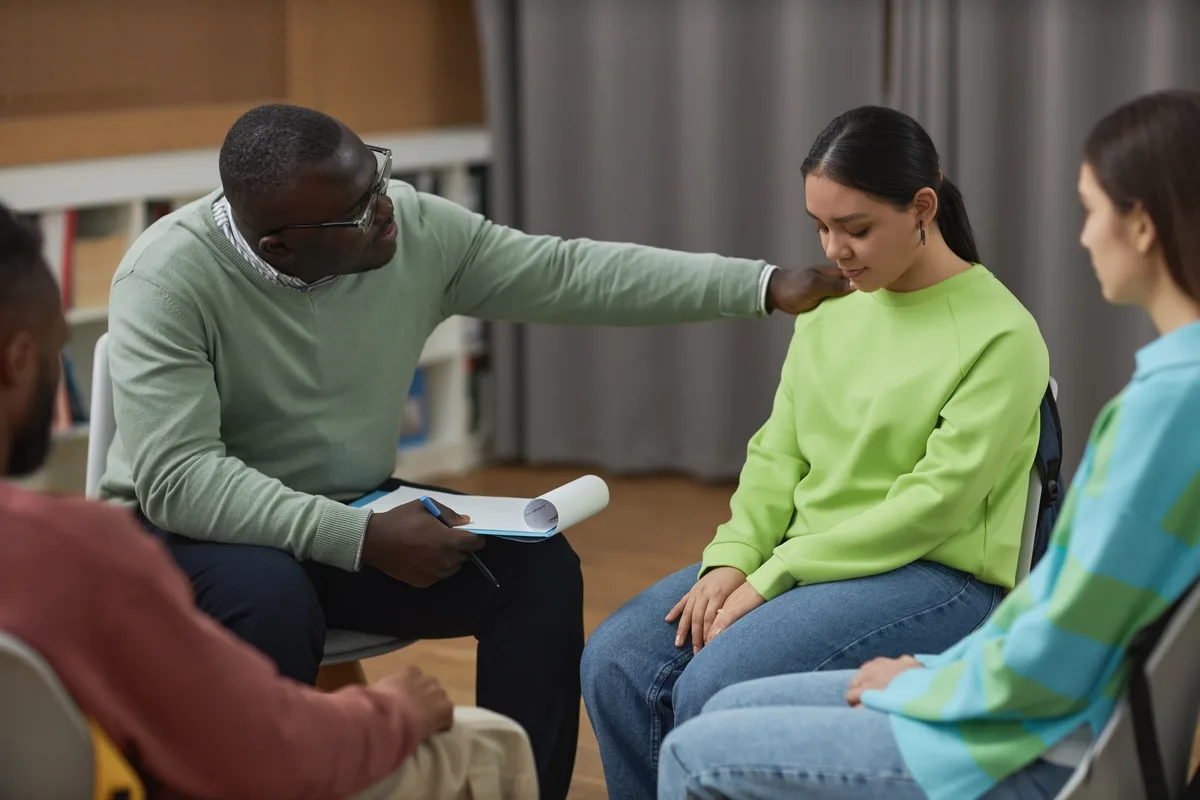24/7 Helpline:
(866) 899-111424/7 Helpline:
(866) 899-1114
Learn more about Aftercare Support centers in Decatur County
Aftercare Support in Other Counties

Other Insurance Options

BlueCross

Cigna

Self-pay options

Magellan

Humana

Multiplan

Premera

Covered California

Access to Recovery (ATR) Voucher

Regence

Lucent

Horizon Healthcare Service

United Health Care

WellPoint

Excellus

Health Partners

Highmark

Carleon
Beacon

CareSource

Centerstone
Centerstone is a non-profit rehab located in Greensburg, Indiana. Centerstone specializes in the tre...

Groups
Groups is private healthcare company providing outpatient treatment for opiate addiction using weekl...

Outside in
Outside In is located in Greensburg, Pennsylvania. Outside In provides individual, family, and group...

SPHS Behavioral Health
SPHS Behavioral Health is a non-profit rehab located in Greensburg, PA. SPHS Behavioral Health speci...

Gateway Rehab – Outlet Way
Gateway Rehab - Outlet Way provides flexible and confidential outpatient treatment required by those...

Accessible Recovery Services
Accessible Recovery Services - East Otterman Street provide the very best comprehensive medical care...

NHS Behavioral Health
NHS Behavioral Health is a private rehab located in Greensburg, Pennsylvania. NHS Behavioral Health ...

Allied Addiction Recovery
Allied Addiction Recovery is a drug and alcohol addiction treatment facility based in Greensburg, PA...




















The Adanta Group – Green County
The Adanta Group is a private, non-profit organization providing community-based mental health; subs...

Wesley Spectrum Services – Mental Health Services
Wesley Spectrum Services – Mental Health Services is a private rehab located in Greensburg, Pennsylv...

Excela Behavioral Health
Excela Behavioral Health is a private rehab located in Greensburg, Pennsylvania. Excela Behavioral H...

AA – Alcoholics Anonymous
AA – Alcoholics Anonymous is a non-profit rehab located in Greensburg, Pennsylvania. AA – Alcoholics...

MedMark Treatment Centers
MedMark Treatment Centers offers outpatient medication assisted treatment for opiate addiction by th...























































